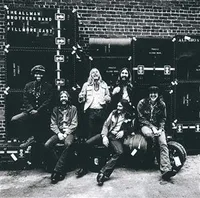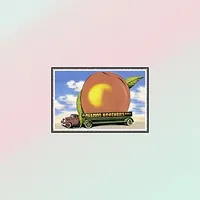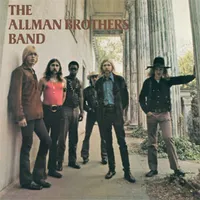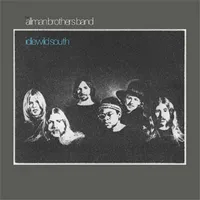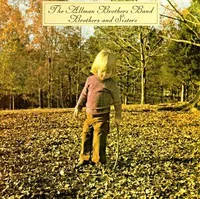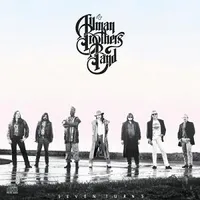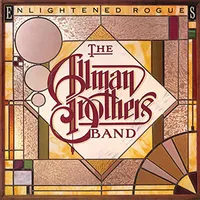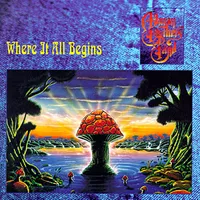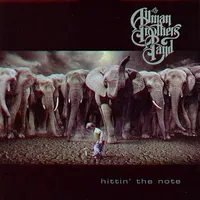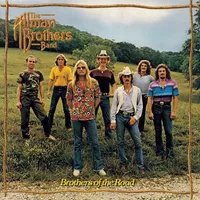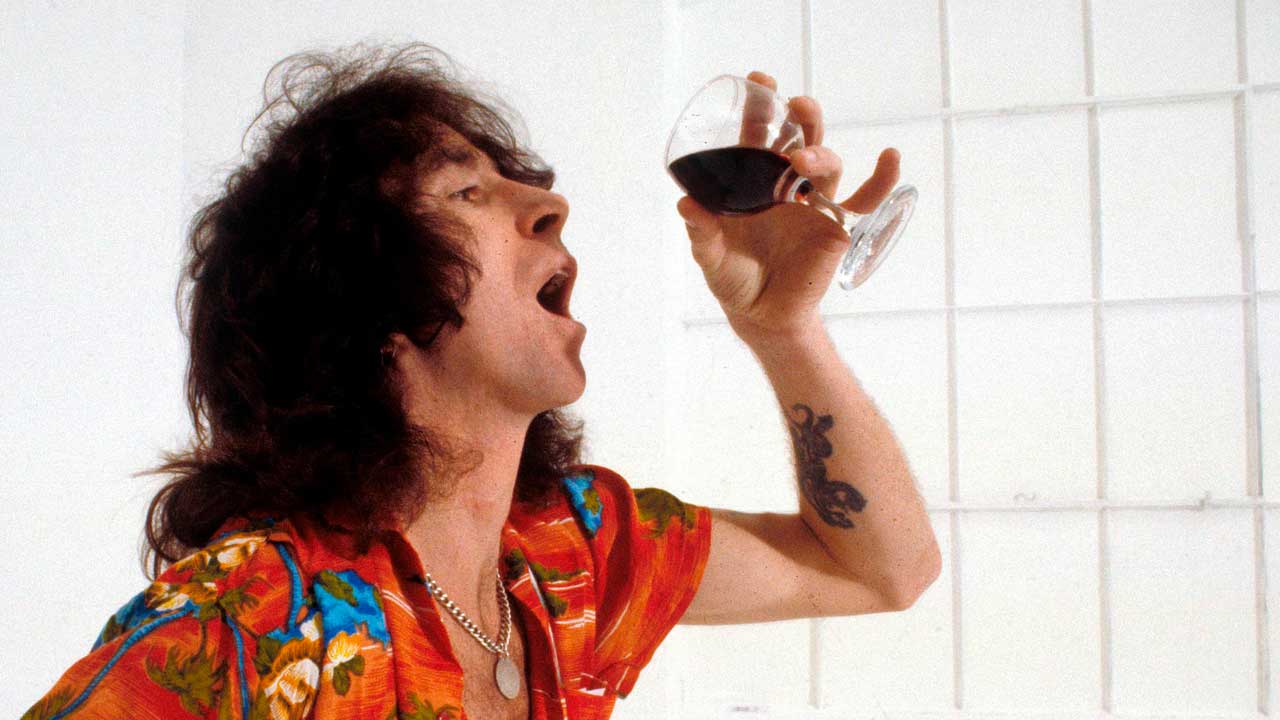"We were up in places no one else was thinking about": Nine albums by the Allman Brothers Band you should listen to... and one you should ignore
Celebrating the musical telepathy of the Allman Brothers Band
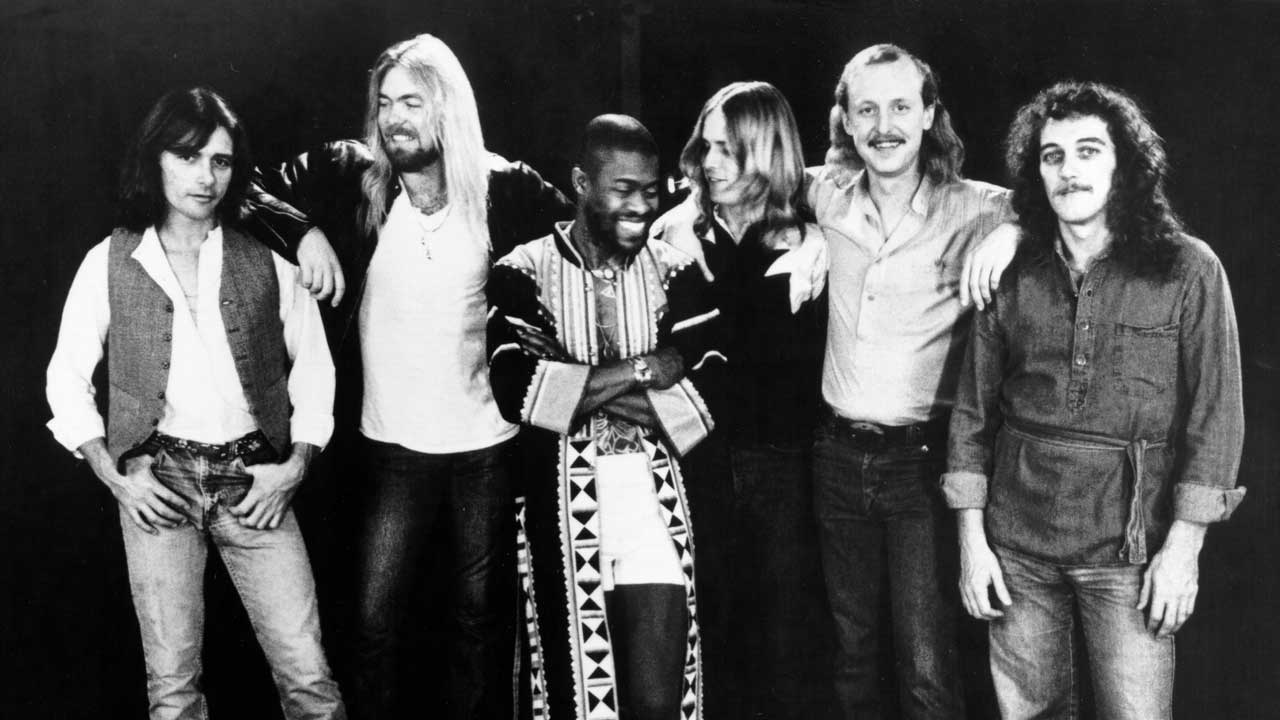
Select the newsletters you’d like to receive. Then, add your email to sign up.
You are now subscribed
Your newsletter sign-up was successful
Want to add more newsletters?

Every Friday
Louder
Louder’s weekly newsletter is jam-packed with the team’s personal highlights from the last seven days, including features, breaking news, reviews and tons of juicy exclusives from the world of alternative music.

Every Friday
Classic Rock
The Classic Rock newsletter is an essential read for the discerning rock fan. Every week we bring you the news, reviews and the very best features and interviews from our extensive archive. Written by rock fans for rock fans.

Every Friday
Metal Hammer
For the last four decades Metal Hammer has been the world’s greatest metal magazine. Created by metalheads for metalheads, ‘Hammer takes you behind the scenes, closer to the action, and nearer to the bands that you love the most.

Every Friday
Prog
The Prog newsletter brings you the very best of Prog Magazine and our website, every Friday. We'll deliver you the very latest news from the Prog universe, informative features and archive material from Prog’s impressive vault.
It’s no small feat to single-handedly invent a genre of music. But that’s what the Allman Brothers Band did with southern rock back in the early 1970s. Not that you’d want to say that to certain members of the group. “When I hear people describe us as southern rock I get fighting mad,” said drummer Butch Trucks.
Though they lived in Macon, a city nicknamed “the heart of Georgia,” and spoke with southern accents, when it came to music, the band’s tastes were all over the map: blues, country, rock, gospel, even free jazz.
“We took it to where Cream and the Grateful Dead took it,” said Trucks, “then added John Coltrane and Herbie Hancock to the mix and stirred it a bit, and we were up in places no one else was thinking about.”
Reaching those lofty places took time. The band evolved out of two 1960s-era West Coast ventures, the Allman Joys and Hourglass, in which brothers Gregg and Duane Allman had attempts at everything from blue-eyed soul to psychedelia. It wasn’t until they moved back to Georgia in ’69 that they started clicking. Or, in Allman lingo, “hittin’ the note”.
‘Hittin’ the note’ was all about interplay and musical telepathy. And that’s what made the original line-up of the Allman Brothers Band so exceptional on their early records (the best of which, At Fillmore East, remains a strong contender for the greatest live album of all time).
After Duane’s death in October 1971, what followed was a head-shaking, decades-long tale of deaths, drugs, break-ups, lawsuits and even, amid the 20 or so albums they put out in that time, the occasional triumph.
Until the end, survivors Gregg Allman, Butch Trucks and Jaimoe Johanson kept the flame burning with live shows, until Gregg announced that the band would be wrapping things up for good after their 45th anniversary celebrations in 2014. Just three years later, he was dead.
Even now the spirit of the departed members lives on, with The Brothers – including former members Jaimoe, Warren Haynes and Derek Trucks – performing the Allmans' catalogue live in concert in 2020 and again in 2025.
The real legacy of the Allman Brothers Band lives on not only in classic albums like Eat A Peach and Brothers And Sisters, but also in a sprawling southern songbook that includes Lynyrd Skynyrd, Georgia Satellites, Drive-By Truckers, Kings Of Leon and Alabama Shakes. But they’re still resistant to easy labels.
“I’ve heard that damn expression ‘jam band’ so many times,” Gregg said. “It’s b.s. The Brothers are not a jam band, we’re a band that jams.”

At Fillmore East (Capricorn, 1971)
Duane Allman had a word for what the group did on stage: religion. The tenets of it involved a baptism in blues, rock and jazz, coupled with a faith in your bandmates and the ability to testify with your instrument.
This live album, recorded in New York in 1971, not only captured the best of that deep-fried divinity (with some clever editing from Tom Dowd) but also pioneered southern rock and defined the art of the jam. The shows have been reissued in their entirety as The Fillmore Concerts, but the original album stands as the must-have bible for all things Allman. Statesboro Blues, Stormy Monday, Whipping Post… Amen, Brothers.
‘Bearing sorrow, having fun.’ That phrase from Melissa captures the essence of this masterpiece album. After Duane died in a motorbike crash, the band rallied and made a studio-meets-live double album (including choice leftovers from At Fillmore East) that was part benediction, part bridge to the future.
Every song here is a classic, from the southern soul stirrer Ain’t Wastin’ Time No More to the epic Mountain Jam to Dickey Betts’s uplifting Blue Sky to the delicate acoustic jewel Little Martha. Drummer Butch Trucks called it “the apex of who we were,” and Gregg Allman said it “has the roots of our whole thing as a band”.
The Allman Brothers Band (Atco, 1969)
After losing faith in the West Coast scene, Duane Allman migrated back to his native southland, quickly becoming Muscle Shoals’s resident hotshot guitarist on sessions for Wilson Pickett and Aretha Franklin.
These soulful associations inspired in short order a stylistic revelation, a reunion with brother Gregg and this sizzling self-titled debut album. It’s remarkable how self-assured the group sounds right out of the gate. From the deep, sweaty blues of It’s Not My Cross To Bear to the swirling seven-minute reverie of Dreams, this is the birth cry of southern rock.
The band’s second album threads their emerging sonic trademarks – tightly twined guitars, polyrhythmic double drums, southern bluesman vocals, free-flight improvisations – through a handful of memorable songs, while introducing ace producer Tom Dowd into the mix.
Highlights include the scorching instrumental In Memory of Elizabeth Reed, a rousing Hoochie Coochie Man, the tent-revival strummer Revival and the haunting moonshine soul tune Midnight Rider (as he predicted, the road would ‘go on forever’). The album was their first to crack the US Top 40. Sadly it was also Duane’s last full album with the band.
Brothers And Sisters (Capricorn, 1973)
Just two tracks into recording the follow-up to Eat A Peach, tragedy struck again when bassist Berry Oakley was killed in a motorcycle accident. This time it was Dickey Betts who stepped up to lead the charge, pushing his warm, country-tinged sound forward with Jessica, Pony Boy and US hit Ramblin’ Man.
Gregg, preoccupied with his first solo project, added gritty balance with Wasted Words and Come And Go Blues. The result was the band’s first US No.1 album. But there was a downside. “We became rock stars,” said Butch Trucks, “and we lost all sense of why we were doing it.”
The title refers to a Navajo saying that there are seven times in life when a momentous decision must be made, and a wrong one creates a dead end. After the trials the band had been through, the decision to reunite for the second time turned out to be the right one.
With Tom Dowd producing, Gregg in fine voice and new guitarist Warren Haynes tandem-riffing with Dickey Betts, they sound primed for the future. But it’s not just about reinvention as much as reclaiming past glories, and on the snarling single Good Clean Fun, the countrified Let Me Ride, and the jazzy jam True Gravity they do just that.
Enlightened Rogues (Capricorn, 1979)
After the last gasp of 1975’s Win Lose Or Draw, the band split and Gregg Allman spiralled into a tabloid hell that rebranded him as Cher’s druggy ex-rock star hubby. This was addressed movingly not only in his song It Just Ain’t Easy, but also in the determination evident in his voice throughout the band’s first comeback record.
Gregg sounds like a convict just sprung from jail, humbled by a second chance in society. Meanwhile, Dickey Betts brought in two members from his band Great Southern, and contributed standout tracks Crazy Love and Pegasus. A record whose charms have increased with time.
Where It All Begins (Sony, 1994)
Dickey Betts’s final album with the band is often overlooked (maybe because of an eyesore sleeve, which looks like a dashed-off high-school art assignment). But inside it’s solid Brotherly music throughout.
Recorded live in the studio with minimal overdubs, All Night Train, Sailin’ Cross The Devil’s Sea and What’s Done Is Done are no-fuss blues rockers, with autobiographical lyrics from Gregg, while Warren Haynes’s Soulshine echoes Muscle Shoals-style balladry, and Betts’s nine-minute title track rolls Blue Sky into In Memory Of Elizabeth Reed for maximum jamming goodness.
Hittin’ The Note (Sanctuary, 2003)
The ABB’s first album of the 21st century introduced 23-year-old guitarist Derek Trucks (Butch’s nephew) as replacement for the dismissed Dickey Betts. And the youngblood’s back-porch Dobroguitar duel with Warren Haynes opens the album with one of its most affecting tracks, Old Friend.
Haynes and Gregg Allman shoulder the songwriting, and while Firing Line, Rockin’ Horse and 12-minute workout Instrumental Illness don’t exactly reinvent the wheel, they are what Gregg called “kickin’ stuff”, providing solid platforms for traditional virtues like lock-step guitars and Gregg’s gruff voice to shine through. Butch Trucks called this “the best music we’ve done since Duane died”.
...and one to ignore
You can trust Louder
Brothers Of The Road (Arista, 1981)
In 1981, someone at Arista Records must’ve said: “Okay, guys, let’s think more Doobie than Allman, in terms of Brothers.” Certainly, the slick MOR production and bouncy synthesisers that were creeping into their previous album, Reach For The Sky, are now like oil to the elemental water of the band’s trademark lead guitar lines and organic bluesy grooves.
Gregg is still in pretty good form, and his vocal on the catchy Things You Used To Do is the sole redeeming highlight on a record that otherwise sounds like a not-very-good Members Only-jacketed Allman Brothers tribute band.
Sign up below to get the latest from Classic Rock, plus exclusive special offers, direct to your inbox!
Bill DeMain is a correspondent for BBC Glasgow, a regular contributor to MOJO, Classic Rock and Mental Floss, and the author of six books, including the best-selling Sgt. Pepper At 50. He is also an acclaimed musician and songwriter who's written for artists including Marshall Crenshaw, Teddy Thompson and Kim Richey. His songs have appeared in TV shows such as Private Practice and Sons of Anarchy. In 2013, he started Walkin' Nashville, a music history tour that's been the #1 rated activity on Trip Advisor. An avid bird-watcher, he also makes bird cards and prints.
